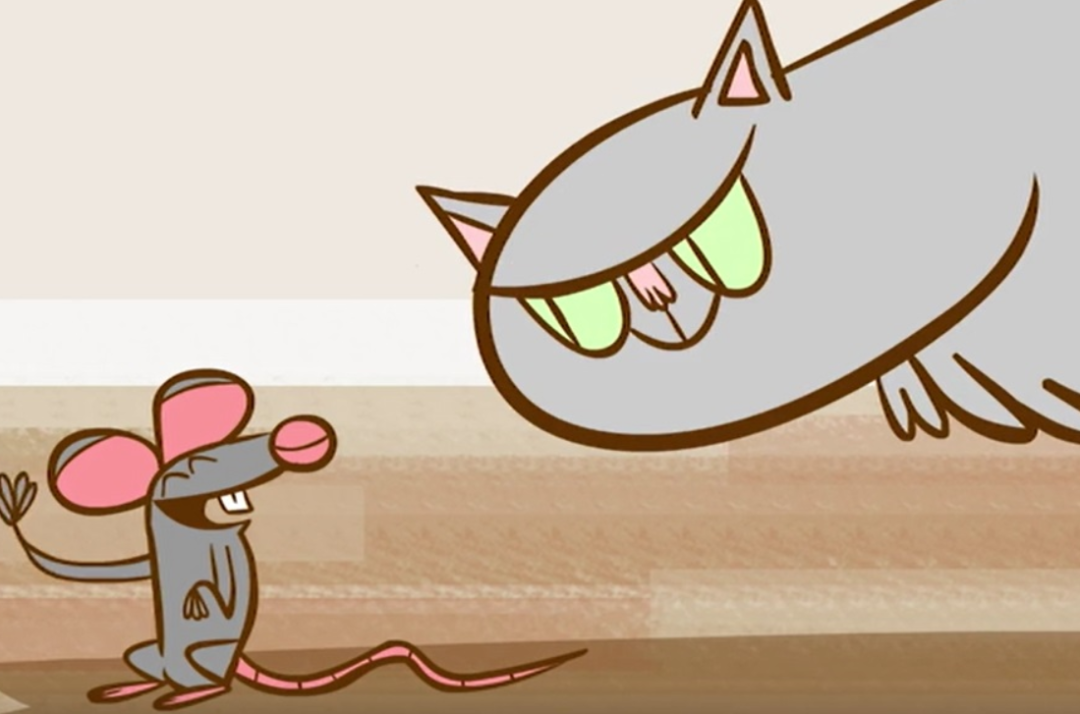
演讲题目:Is there a disease that makes us love cats?
演讲简介:
现在,世界上将近三分之一的人口都被一种名为刚地弓形虫的奇怪疾病感染,并且大多数人们对此毫不知情。尽管它们可以借助几乎所有寄主繁殖,他们只能够在猫的肠道里有性繁殖。这种疾病会是这么多人喜欢猫并将它们养做宠物的原因吗?
中英文字幕
Is there a disease that makes us love cats, and do you have it?
我们对猫的着迷是不是一种疾病?你是不是患者之一?
Maybe, and it's more likely than you'd think.
或许,而且比你想象的可能性要大。
We're talking about toxoplasmosis, a disease caused by toxoplasma gondii.
我们正在谈论弓形虫病,这是一种由刚地弓形虫引起的疾病。
Like all parasites, toxoplasma lives at the expense of its host, and needs its host to produce offspring.
像其他寄生虫一样,刚地弓形虫的生长以牺牲寄主为代价,同时需要借助寄主繁衍生息。
To do that, toxo orchestrates a brain manipulation scheme involving cats, their rodent prey, and virtually all other birds and mammals, including humans.
为了达到这样的目的,刚地弓形虫精心策划了一种大脑控制策略,包括猫、它们的啮齿目猎物,几乎是全部的鸟类和哺乳动物,以及人类。
Documented human infections go as far back as ancient Egypt.
记录在案的人类感染可以追溯到古埃及,
We found samples in mummies.
我们在木乃伊中找到了样本。
Today, about a third of the world's population is infected, and most of them never even know it.
现在,大约世界上三分之一的人口感染有这种寄生虫,而且大多数人对此毫不知情。
In healthy people, symptoms often don't show up at all.
在健康人中间,症状一般难以察觉,
When they do, they're mild and flu-like.
展示出来也很温和,与流感类似。
But those are just the physical symptoms.
但这些只是身体症状。
Toxoplasma also nestles into our brains and meddles with our behavior behind the scenes.
刚地弓形虫还会在我们的大脑中安家落户,并且会在背地里干涉我们的一举一动。
To understand why, let's take a look at the parasite's life cycle.
要想知道为何会这样,我们要看一下寄生虫的生命周期。
While the parasite can multiply in practically any host, it can only reproduce sexually in the intestines of cats.
虽然寄生虫可以在几乎任何寄主体内繁殖,它们只能够在猫的肠内进行有性繁殖,
The offspring, called oocysts, are shed in the cat's feces.
产生名为卵囊的后代分散在猫砂中。
A single cat can shed up to a hundred million oocysts.
仅仅一只猫就可以产生多达一亿个卵囊。
If another animal, like a mouse, accidentally ingests them,
如果被另外一个动物,比如老鼠,意外吞食,
they'll invade the mouse's tissues and mature to form tissue cysts.
它们就会入侵老鼠的组织,发展成熟为组织囊肿。
If the mouse gets eaten by a cat, the tissue cysts become active and release offspring that mate to form new oocysts, completing the cycle.
如果这只老鼠被猫捕食,组织囊肿就会活跃起来,并且产生可以交配繁殖新的卵囊的后代,完成整个周期。
But there's a problem.
但是其中有一个问题,
A mouse's natural desire to avoid a cat makes it tough to close this loop.
老鼠怕猫的天性使得完成这个周期变得困难。
Toxoplasma has a solution for that.
刚地弓形虫对此早有对策。
The parasites invade white blood cells to hitch a ride to the brain where they seem to override the innate fear of predators.
寄生虫入侵白细胞到达大脑,在那里它们推翻了老鼠与生俱来的恐惧。
Infected rodents are more reckless and have slower reaction times.
被感染的啮齿动物更加鲁莽且反应减慢。
Strangest of all, they're actually attracted to feline urine,
最奇怪的是,它们实际上被猫尿吸引,
which probably makes them more likely to cross paths with a cat and help the parasite complete its life cycle.
因此增大了遇到猫类的几率,更有可能帮助寄生虫完成它们的生命周期。
How does the parasite pull this off?
刚地弓形虫是怎样达成目的呢?
Although the exact mechanism isn't known, toxo appears to increase dopamine, a brain neurotransmitter that is involved in novelty-seeking behavior.
虽然途径还不明确,但是这些寄生虫增加了多巴胺,一种参与形成由好奇带来的行为的神经传递素。
Thus, one idea is that toxo tinkers with neurotransmitters, the chemical signals that modulate emotions.
因此,一种看法是刚地弓形虫影响了神经传递素,也就是影响情感的化学信号,
The result? Fatal attraction.
带来的影响就是致命的吸引。
But mice aren't the only animals that end up with these parasites, and that's where humans, and all of toxo's other hosts, come in.
但是鼠类并不是唯一感染这种寄生虫的动物,还有人类等其他的寄主。
We can accidentally ingest oocysts in contaminated water, or unwashed produce, or from playing in sandboxes, or cleaning out litter boxes.
我们可能会无意中吞食卵囊通过污染的水、没有清洗的农产品、在沙坑中玩耍、或者是清理猫砂盆。
This is behind the common recommendation that pregnant women not change cat litter.
这也是为什么一般不建议怀孕中的女性打扫猫粪便,
Toxo can cause serious birth defects.
因为刚地弓形虫可能带来严重的出生缺陷。
We can also get toxo from eating undercooked meat from other animals that picked up some oocysts.
我们同样可能通过食用没有做熟的、且含有卵囊的动物的肉类得病。
And it turns out that toxo can mess with our brains, too.
事实证明,刚地弓形虫同样可以干涉我们的行为。
Studies have found connections between toxo and schizophrenia, bipolar disorder, obsessive compulsive disorder, and aggression.
研究发现,刚地弓形虫和精神分裂症、双向型障碍、强迫症和脾气暴躁之间有紧密联系,
It also slows reactions and decreases concentration,
这种寄生虫还使我们反应速度降低并且注意力不集中,
which may be why one study found that people involved in traffic accidents were almost three times more likely to have toxoplasma.
这可能就是为什么一项研究发现,发生交通事故的人感染弓形虫的可能性几乎是其他人的三倍。
So is toxo manipulating our brains as an evolutionary strategy to get predatory cats to eat us?
这么说来,刚地弓形虫对我们大脑的操控是一种进化策略吗?是为了让食肉的猫类吃掉我们吗?
Or are our brains just similar enough to a rodent's that the same neurological tricks that lure them in catch us in the net, too?
还是说仅仅因为我们的大脑与啮齿目动物有共同之处,因此吸引它们的神经学把戏对我们也有效果?
And is toxo the reason so many people love cats and keep them as pets?
刚地弓形虫能否可以解释为什么那么多人喜欢猫并把它们当作宠物吗?
Well, the jury's still out on that one.
这些问题仍然是众说纷纭,莫衷一是。
Some recent studies even contradict the idea.
最近的一些研究甚至与这一结论矛盾。
Regardless, toxoplasma has definitely benefited from humans to become one of the world's most successful parasites.
不管怎么说,人类在使刚地弓形虫成为世界上最成功的寄生虫这个事实上功不可没。
It's not just our willingness to let cats on our dining room tables or in our beds.
不仅仅在于我们乐意让猫呆在餐桌上或者床上。
Raising livestock and building cities which attract rodents has provided billions of new hosts, and you and your cat may be two of them.
饲养牲畜和建造城市吸引了难以计量的啮齿目动物,提供了几十亿寄主,你和你的猫或许就是其中两个。
|
|
 /1
/1 